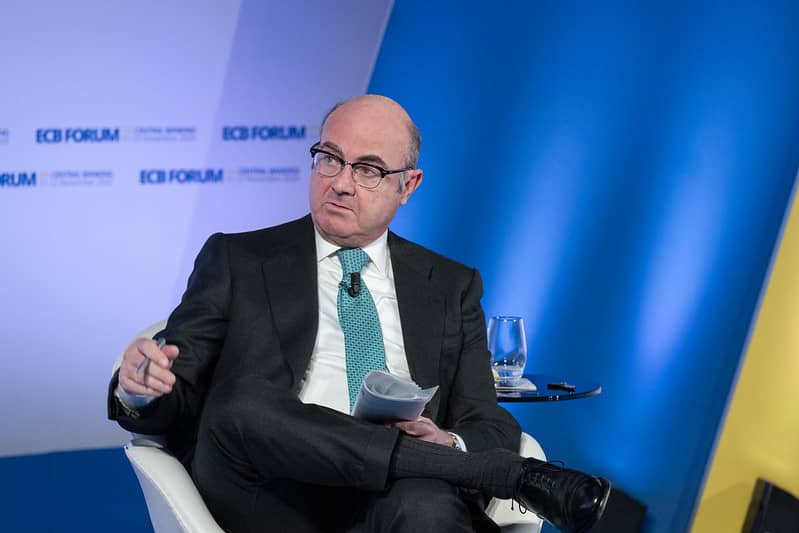ECB Helpless to Stem Euro's Ascent
- Written by: Gary Howes

Image © European Central Bank.
The Euro-Dollar won't be shackled by the European Central Bank (ECB).
There's talk about the ECB being comfortable with current levels in the Euro, but that it would be uneasy with a EUR/USD exchange rate above 1.20.
The implication is that the central bank would adjust its policies to prevent a material increase above this 'line in the sand', which gives traders a target to aim for.
Given this, the Euro might be exposed to increased selling pressure as it approaches this level, as market expectations become self-fulfilling.
Compare EUR to USD Exchange Rates
Find out how much you could save on your euro to US dollar transfer
Potential saving vs high street banks:
$2,750.00
Free • No obligation • Takes 2 minutes
However, some analysts think there is precious little the ECB can do to stem the Euro's rise.
This is because the reasons for the rise matter, and if we look at what's going on, we soon realise the central bank will prove irrelevant: If the Euro's rapid rise against the Dollar was the result of monetary policy differences between the Eurozone and U.S., then yes, the ECB could do something.
In a world where interest rates set the tone for FX, the ECB could do something about its currency's strength, as a stronger Euro penalises European exporters. Unfortunately, for Frankfurt, the Euro's rise is the result of a substitution away from U.S. assets due to policy set by U.S. President Trump and his team.
Drivers include tariffs, fears over domestic debt growth, fears about retaliatory taxes on foreign investors, U.S. Federal Reserve interference and the broader loss of U.S. economic exceptionalism.
In short, the exchange rate is being set by the Dollar side of the equation.
"How far the EUR-USD exchange rate will rise depends largely on what certain people in the White House come up with. Unfortunately, Lagarde and her colleagues have no influence over this. I therefore doubt that they will be able to prevent a rise above 1.20 – at least if it is driven by USD weakness," says Thu Lan Nguyen, Head of FX and Commodity Research at Commerzbank.

Luis de Guindos, Vice-President, European Central Bank, this week suggested 1.20 was a pain threshold in Euro-Dollar. Image © Bernd Hartung / European Central Bank.
China's management of its currency will also play a significant part in what happens to Euro-Dollar, as the gradual appreciation of the Yuan is delivering a significant supply of USDs into the market that is being felt right across the board.
"I had 1.2000 as a potential destination in a world where the Chinese were letting their currency strengthen and other Asian exporters were following suit," says W. Brad Bechtel, head of FX research and strategy at Jefferies, the global investment bank.
"I would not think we punch through 1.2000 unless USD/CNY's nightly fixing is closer to 7.0000," he adds.
China manages the yuan through a daily fixing mechanism, and when it allows the yuan to strengthen (i.e., lowers the USD/CNY fix), it typically reflects an intention to absorb more global capital and reduce trade imbalances.
China pursues a stable Yuan policy that favours its exporters by keeping the currency artificially low.
However, in response to Trump's efforts to rebalance U.S. trade and strong stance on tariffs, there is a tacit understanding by Chinese authorities that they should let their currency devalue.
This has global consequences as a stronger CNY usually implies broad U.S. dollar weakness. Traders also interpret lower USD/CNY fixes as a signal to sell dollars across the board.
Again, this only reaffirms that forces external to the ECB are in charge of the Euro.




